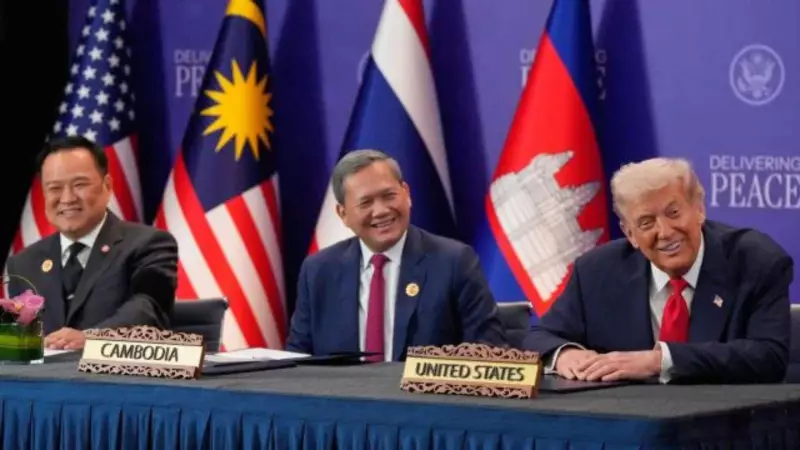
Former US President Donald Trump has made a striking revelation about his foreign policy achievements, claiming he personally prevented an armed conflict between Cambodia and Thailand during his time in office. The bold assertion came during a recent political rally, where Trump detailed his intervention in what he described as a potentially devastating regional confrontation.
The Presidential Intervention
According to Trump's account, the situation emerged when Cambodia allegedly threatened to attack Thailand over territorial disputes. The former president stated he received an urgent call from Cambodia's leadership informing him of their intentions to launch military operations against their neighbor. Trump immediately recognized the gravity of the situation and its potential implications for regional stability in Southeast Asia.
"They were going to have a war," Trump told his audience, emphasizing the immediacy of the threat. His response was characteristically direct and decisive. The former president claimed he told Cambodian officials in no uncertain terms: "You can't do that. You can't do that." This firm stance, according to Trump, was enough to de-escalate the situation and prevent armed conflict from breaking out between the two Southeast Asian nations.
Context and Regional Dynamics
The relationship between Cambodia and Thailand has historically experienced tensions, particularly regarding border disputes near the Preah Vihear temple, a UNESCO World Heritage site. This ancient Hindu temple has been a point of contention between the two countries for decades, with both nations claiming sovereignty over the surrounding territory.
Previous clashes around the temple area in 2008 and 2011 resulted in casualties and required international diplomatic intervention. The situation has remained sensitive, with both countries maintaining military presence in the border region. However, recent years have seen improved relations and diplomatic efforts to resolve outstanding issues peacefully.
Trump's claim of single-handedly preventing war adds a new dimension to understanding US diplomatic engagement in Southeast Asia during his administration. While the exact timing of the alleged incident remains unspecified in his remarks, the assertion underscores Trump's self-proclaimed prowess in international conflict resolution.
Political Implications and Reactions
The former president's revelation comes as he campaigns for a potential return to the White House in the upcoming presidential election. Trump frequently highlights his foreign policy achievements as evidence of his strong leadership capabilities and unique approach to international relations.
This particular claim aligns with Trump's narrative of being a dealmaker and peacemaker on the global stage. During his presidency, he pointed to several diplomatic breakthroughs, including the Abraham Accords that normalized relations between Israel and several Arab nations. The Cambodia-Thailand incident represents another example of what he describes as his effective, direct approach to international diplomacy.
Regional experts and diplomatic observers are likely to scrutinize Trump's claims, examining the historical record to verify the timeline and circumstances of the alleged intervention. Both Cambodian and Thai officials have yet to comment publicly on Trump's assertions regarding the prevented conflict.
The revelation also highlights the ongoing importance of US engagement in Southeast Asia, where China's influence has grown significantly in recent years. Maintaining stability in the region remains a key interest for American foreign policy, making such diplomatic interventions potentially significant for broader geopolitical dynamics.
As the political landscape evolves, Trump's account of preventing war between Cambodia and Thailand adds to the complex tapestry of his presidential legacy and ongoing influence on international relations discourse. The story serves as a reminder of how presidential decision-making can potentially alter the course of international events and prevent conflicts from escalating into full-scale wars.





